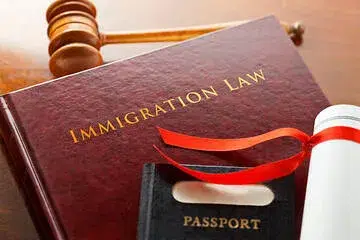Welcome to Portway Solicitors – Your Gateway to the UK Immigration applications
Immigration to the UK involves individuals relocating to the UK for various reasons, including tourism, work, family reunion, study, or seeking refuge. The process is governed by a set of regulations and requirements designed to ensure the integrity of the immigration system. Please find below a wide range of applications that we deal with our clients on a daily basis.
Our Services:
Family Visas (FLR applications and Entry Clearance applications):
- Spouse or Partner Visa: For individuals married to or in a civil partnership with a UK resident or those who are settled in the UK.
- Parent of a British Child Visa: Designed for parents of children who are British citizens.
- Family Reunion Visa: Facilitates the reunification of family members who have been separated due to conflict or persecution.
Work Visas:
- Tier 2 (Skilled Worker / Health and Care) Visa: For skilled workers sponsored by a UK employers (Private / NHS / registered Care Homes), who are registered as Licensed Sponsors with the Home Office.
- Tier 1 (Innovator Founder) Visa: Designed for entrepreneurs intending to start a business in the UK.
- Tier 5 (Temporary Worker) Visa: Covers various categories, including charity workers, creative and sporting workers, religious workers and youth mobility schemes.
Student Visas:
- Tier 4 (General) Student Visa: For individuals pursuing full-time education in the UK.
- Graduate / Post-study Work Visa: For international students who have completed their studies at a UK institution.
Visitor Visas:
- Standard Visitor Visa: For short-term visits, including tourism, business meetings, or medical treatment.
Other Visas:
- Ancestry Visa: Available to Commonwealth citizens with a UK-born grandparent.
- Tier 2 Global Talent Visa (including Endorsement applications): Aimed at individuals recognised as leaders or emerging leaders in academia, arts, humanities, engineering, medicine, science, and digital technology.
- Applying for Foreign visas (other than the UK) – for example, medical treatment to USA, Schengen visa to European countries, etc.
Citizenship applications (Overseas citizens):
- Registration of Overseas citizens of India, Mauritius and their spouses, etc.
- British Nationality applications – children born outside the UK to British parents, acquiring Citizenship by Descent, etc.
- UK Passport applications
- Stateless applications – children and adults in the UK
Changes in Circumstances (including Replacement of BRPs):
- Reporting Changes: It is important to notify the Home Office of any changes in circumstances, such as address, employment, or family status and or Replacement of BRP’s.
Appeals and Rejections:
- Appeals Process: If an application is rejected, applicants may have the right to appeal the decision with the First-tier Tribunal and/or Upper Tribunal. It is crucial to understand the reasons for rejection.
- Judicial Review: It is important to note that seeking judicial review in immigration cases involves challenging the process or legality of a decision rather than the decision itself, when there is no right of appeal.
- Pre-Action Protocols: Challenging the Home Office’s decision prior to issuing and serving the judicial review claim.
- Administrative Review: Challenging the decisions for the Entry Clearance applications when there is no right of appeal.
Eligibility and Points-Based System:
- General Requirements: Applicants typically need to prove their identity, provide evidence of the purpose of their stay, and meet health and character requirements.
- Points-Based System: Many visa categories operate on a points-based system, considering factors such as age, English language proficiency, qualifications, and salary.
Application Process:
- Appeals Process: If an application is rejected, applicants may have the right to appeal the decision with the First-tier Tribunal and/or Upper Tribunal. It is crucial to understand the reasons for rejection.
- Judicial Review: It is important to note that seeking judicial review in immigration cases involves challenging the process or legality of a decision rather than the decision itself, when there is no right of appeal.
- Pre-Action Protocols: Challenging the Home Office’s decision prior to issuing and serving the judicial review claim.
- Administrative Review: Challenging the decisions for the Entry Clearance applications when there is no right of appeal.
Financial Requirements:
- Maintenance Funds: Applicants often need to demonstrate they have sufficient funds to support themselves during their stay. The amount varies depending on the visa category.
English Language Proficiency:
- Language Tests: Many visa categories require proof of English language proficiency through recognised tests like IELTS.
Health Requirements:
- Tuberculosis Test: Depending on the country of origin, some applicants may need to undergo a tuberculosis test.
- Health Insurance: It’s advisable to have health insurance to cover any medical expenses during the stay in the UK.
Biometric Residence Permits (BRP):
- Issuance: Successful applicants are usually issued a Biometric Residence Permit containing their immigration status and other relevant information.
- Collection: BRPs are collected upon arrival in the UK from designated collection points.
Navigating the UK personal immigration process requires careful attention to detail and adherence to specific requirements.
It is essential for individuals to consult the latest guidance from the UK government and seek professional advice when needed.
Whether for work, study, family reunification, or seeking refuge, understanding the process is crucial for a smooth transition to life in the UK


